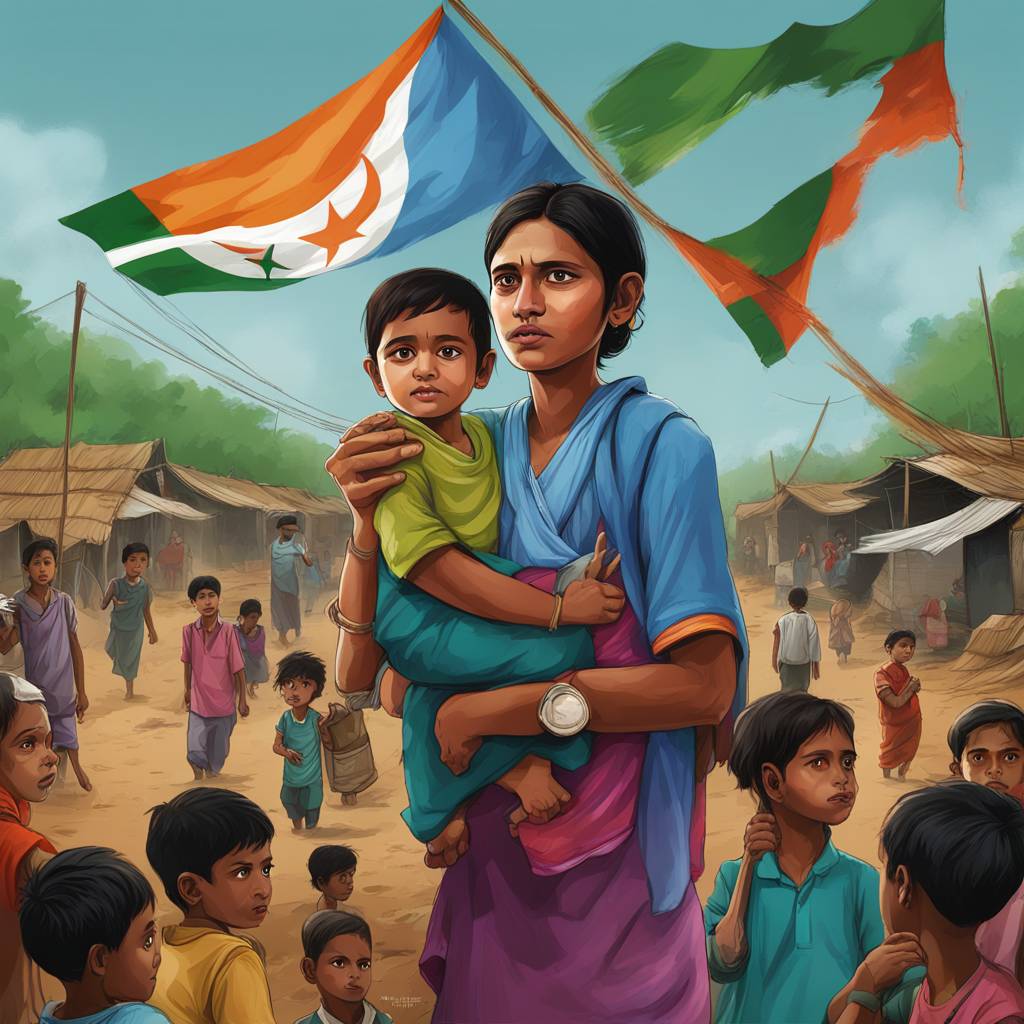The Rohingya Muslims from Myanmar who resettled in refugee camps in Bangladesh are facing a new threat – a surge in deadly violence from armed Rohingya groups and criminal gangs within the camps. These groups, known as the “night government,” are battling each other for control and terrorizing their fellow Rohingya residents. The escalating violence has added to the challenges faced by the refugees, who are already dealing with disease, malnutrition, floods, and landslides. The number of gunshot wounds and killings in the camps have increased, prompting more Rohingya to attempt dangerous boat journeys to escape.
Residents of the camps have accused the local police of being ineffective or complicit in the violence, though police officials deny these claims. The situation in the camps is far from under control, with armed groups like the Arakan Rohingya Salvation Army (ARSA) and Rohingya Solidarity Organization (R.S.O.) carrying out violent acts against their own community members. Other well-organized groups and gangs are also present in the camps, creating a volatile and dangerous environment for the Rohingya refugees.
ARSA, which initially emerged to fight oppression in Myanmar, and R.S.O., have resorted to violence to control their own people within the camps. The lack of economic opportunities for the Rohingya refugees in Bangladesh has forced some to turn to these armed groups out of desperation. The decline in international funding for the Rohingya crisis has also exacerbated their plight, with the current aid levels equating to only 30 cents a day per refugee. This has left many refugees vulnerable to recruitment by these armed groups for illicit activities.
The number of killings and gunshot wounds in the camps has increased significantly, indicating a rise in violence and insecurity. Gunmen have imposed conservative Muslim ideologies on Rohingya women, pressuring them to conform to strict dress codes and not work outside the home. The restrictions placed on movement and work opportunities for the refugees have fueled tensions and conflicts within the camps, leading to a cycle of violence and abuse. The situation has become so dire that even those advocating for human rights are being targeted and attacked.
Despite the challenges they face, some Rohingya residents of the camps are trying to resist joining these armed groups and are advocating for peaceful coexistence. However, the lack of resources, security, and support from authorities leaves them vulnerable to intimidation and violence. Humanitarian organizations working in the camps are struggling to provide aid and protection to the refugees amidst the escalating violence. As the situation continues to deteriorate, it is crucial for the international community to step up support for the Rohingya refugees and address the root causes of the conflict to ensure their safety and wellbeing in the camps.








